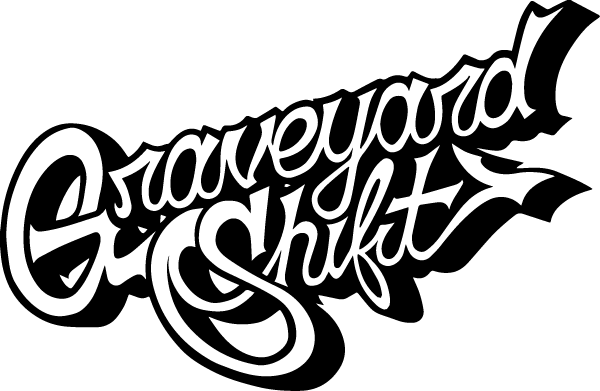Bolivian Women Skateboarders in Indigenous Garb: Empowering Cultural Heritage
In the heart of Bolivia, a remarkable fusion of modern sport and ancient tradition is making waves, both literally and figuratively. On skateboards, the indigenous women of Bolivia are not merely riding; they are breaking stereotypes and celebrating their rich cultural heritage. This unique blend of skateboarding culture and indigenous attire has turned into a powerful symbol of empowerment, resilience, and cultural pride.
The Rise of Indigenous Women Skateboarders
The tradition of skateboarding has been predominantly associated with urban youth and a distinctly modern lifestyle. However, in Bolivia, indigenous women are challenging this narrative. By combining traditional clothing with skateboarding, they are creating a new cultural narrative that is both rooted in heritage and forward-looking.
Embracing Traditional Attire
These women are skating in their traditional indigenous outfits known as “cholita” attire. This includes:
- Colorful, layered skirts
- Elegant shawls
- Bowler hats
The vibrant fabrics and distinctive designs make a striking visual statement against the backdrop of modern skateparks. Moreover, it symbolizes a deep respect for their heritage, while simultaneously asserting their presence in a male-dominated sport.
The Empowering Journey
The journey of these skateboarders represents more than just a pastime; it is a powerful act of reclaiming space and voice in a society where indigenous women have often been marginalized. The act of skateboarding in traditional attire is a poignant declaration of strength and autonomy.
Breaking Stereotypes
For far too long, indigenous women in Bolivia have been confined to specific roles and societal expectations. Through skateboarding, they defy such stereotypes and exhibit multi-dimensional capabilities and ambitions.
- They challenge societal norms
- They serve as role models for younger girls
- They demonstrate that tradition and modernity can coexist
Creating a Community
Beyond individual expression, these women are fostering a community of mutual support and camaraderie. Skateboarding events and gatherings provide safe spaces where women can share experiences, techniques, and support one another in their athletic and personal journeys.
Cultural Heritage and Modern Expression
The seamless blend of cultural heritage and modern expression seen in Bolivian women skateboarders is an inspiring example for the global community. It underscores the idea that embracing one's roots can go hand in hand with contemporary self-expression.
Global Recognition
This unique fusion has caught the attention of global media and organizations, shining a light on the rich tapestry of Bolivia's cultural history. The sight of indigenous women skateboarders has become iconic, serving as a visual representation of cultural resilience and diversity.
Inspiring Future Generations
The influence of these skateboarders extends beyond Bolivia’s borders. They inspire a global audience to rethink preconceived notions about tradition, modernity, and the role of women in sports.
Through social media platforms and international skateboarding events, their stories reach far and wide, motivating others to explore the intersection of cultural heritage and contemporary lifestyles.
Challenges and Triumphs
While the journey of these Bolivian women skateboarders is indeed inspiring, it is also fraught with challenges. From societal pushback to the physical demands of the sport, these women demonstrate formidable resilience.
Overcoming Societal Pushback
Despite their positive impact, not everyone initially welcomed this blend of tradition and modernity. Some felt it was a departure from cultural norms or questioned the appropriateness of women engaging in such activities. However, these skateboarders have shown that cultural expression is dynamic and ever-evolving.
Physical Demands
Skateboarding is a physically demanding sport that requires balance, strength, and skill. Doing so while wearing traditional attire adds an extra layer of complexity. Yet, these women have mastered the art, proving that no obstacle is insurmountable.
Embracing Identity
For these women, skateboarding is not just a sport; it’s a way to embrace and celebrate their identity. By weaving together the threads of their cultural background with a modern pastime, they offer a potent message to the world about the power of self-expression and the importance of preserving cultural heritage.
The Future of Indigenous Skateboarding
The future looks bright for the movement of indigenous women skateboarders in Bolivia. As more women join this empowering journey, the community continues to grow, bringing new opportunities for cultural exchange and personal growth.
Expanding Horizons
The visibility of these skateboarders has opened doors for greater conversations about indigenous rights, gender equality, and cultural preservation. Their efforts are likely to inspire similar movements in other indigenous communities around the world.
A Lasting Legacy
Ultimately, the legacy of the Bolivian women skateboarders lies not just in their impressive skateboarding skills but in their unyielding determination to honor their cultural heritage while embracing modern opportunities. They are living proof that tradition and progress are not mutually exclusive, but can coalesce to create something beautiful and powerful.
In conclusion, the story of Bolivian women skateboarders in indigenous garb is a testament to human resilience and the transformative power of cultural pride. As they continue to push boundaries and inspire others, they carve out a space where tradition and modernity seamlessly blend, leaving an indelible mark on the world.

